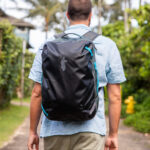Planning a family getaway to the beautiful Bahamas? Known for its stunning beaches and crystal-clear waters, the Bahamas is a popular destination. However, like any travel destination, it’s important to be aware of safety and security considerations. This Bahamas Travel Alert provides essential information to help you ensure a safe and enjoyable trip for your family.
Understanding the Crime Situation in the Bahamas
The U.S. Department of State currently assesses the criminal threat level in New Providence Island, which includes Nassau and Paradise Island, as critical. It’s crucial to understand that the majority of reported crime occurs on New Providence and Grand Bahama (Freeport) Islands. While the Family Islands experience less crime, vigilance is still advised.
In Nassau, travelers should exercise increased caution, particularly in areas south of Shirley Street, known as “Over the Hill.” While tourist areas are generally safer, it’s important to be aware that violent crimes, including burglaries, armed robberies, and sexual assaults, do occur. Staying informed through the latest security messages from the U.S. Embassy in Nassau is highly recommended for the most up-to-date information.
For detailed insights into common safety concerns, resources on credit card fraud, real estate matters, and water sport and scooter safety are available on the U.S. Embassy website.
Assistance for Victims of Crime
Unfortunately, incidents can happen. U.S. citizens who become victims of sexual assault are encouraged to seek assistance from the U.S. Embassy. It’s important to report any crime to the local police by dialing 919 or 911 and to contact the U.S. Embassy at +(242) 322-1181. Remember that local authorities are responsible for investigating and prosecuting crimes.
The U.S. Embassy can provide several forms of assistance to U.S. citizen victims of crime, including:
- Help finding appropriate medical care.
- Assistance in reporting crimes to the police.
- Contacting family or friends with your written consent.
- Explaining the local criminal justice process.
- Providing lists of local attorneys.
- Information on victim’s compensation programs in the United States.
- Emergency loans for repatriation and limited medical support in cases of need.
- Help with finding accommodation and arranging flights home.
- Replacing stolen or lost passports.
U.S. citizen victims of domestic violence can also contact the Embassy for assistance.
Adventure Tourism and Water Safety: What to Know
The Bahamas offers many exciting adventure tourism activities, particularly involving watercraft. However, it’s important to be aware that commercial recreational watercraft activities, including tours, are not consistently regulated. Maintenance standards for watercraft can vary, and not all companies possess the necessary safety certifications.
Image alt text: Colorful boats anchored in the clear turquoise waters of Nassau Harbour, Bahamas, under a sunny sky.
It’s wise to reconsider water activities in rough seas or inclement weather due to past accidents and fatalities. Before engaging in any adventure tourism, especially boat tours, verify the following with the operator:
- Valid credentials and certification to operate in The Bahamas.
- Details regarding liability in case of accidents.
- Safety and rescue protocols in place.
Be particularly cautious of jet-ski operators, especially on New Providence and Paradise Islands, as there have been reports of sexual assaults committed by these operators. U.S. government personnel are prohibited from using independently operated jet-ski rentals in these areas.
When enjoying watersports, carefully assess the risks involved based on your physical condition and abilities. Shark encounters, though infrequent, can occur, leading to serious injury or even death. Avoid swimming alone, especially at secluded beaches or far from shore. Refrain from entering the water above waist level if you’ve been drinking alcohol and always be mindful of jet ski and boat traffic. Never participate in water activities during bad weather or rough seas. Remember that commercial operators may still choose to operate despite weather conditions, so your personal judgment is crucial.
Hurricane Season Awareness
Hurricane season in the Bahamas typically runs from June to November, but hurricanes can occur outside this period. Closely monitor local weather reports during your trip. Airports and seaports will shut down well in advance of a predicted storm, and transportation can become fully booked quickly.
Image alt text: Satellite view of a swirling hurricane approaching the islands of the Bahamas, illustrating the potential danger during hurricane season.
For detailed hurricane preparedness information, consult the Department of State’s Crisis Abroad page and the U.S. Embassy Nassau’s Hurricane Preparedness page.
Tourism Infrastructure and Safety Standards
It’s important to note that the tourism industry in the Bahamas has uneven regulation. Safety inspections for equipment and facilities are not consistently conducted. Hazardous areas or activities may not be clearly marked, and staff may lack proper training or certifications. In case of injury, adequate medical treatment is generally available only in or near major cities. Emergency responders may have limited access to areas outside major cities and may not be able to provide immediate medical care in those locations. Purchasing medical evacuation insurance is strongly recommended for travelers to the Bahamas.
Staying Safe in the Bahamas: Key Takeaways
While the Bahamas offers a beautiful and memorable vacation experience, being informed and prepared is key to ensuring your family’s safety. By staying aware of your surroundings, exercising caution in certain areas, and taking necessary safety precautions, especially regarding water activities and during hurricane season, you can minimize risks and enjoy your Bahamas adventure with greater peace of mind. Always stay updated with the latest Bahamas travel alerts and advisories from reliable sources like the U.S. Department of State and the U.S. Embassy in Nassau.

